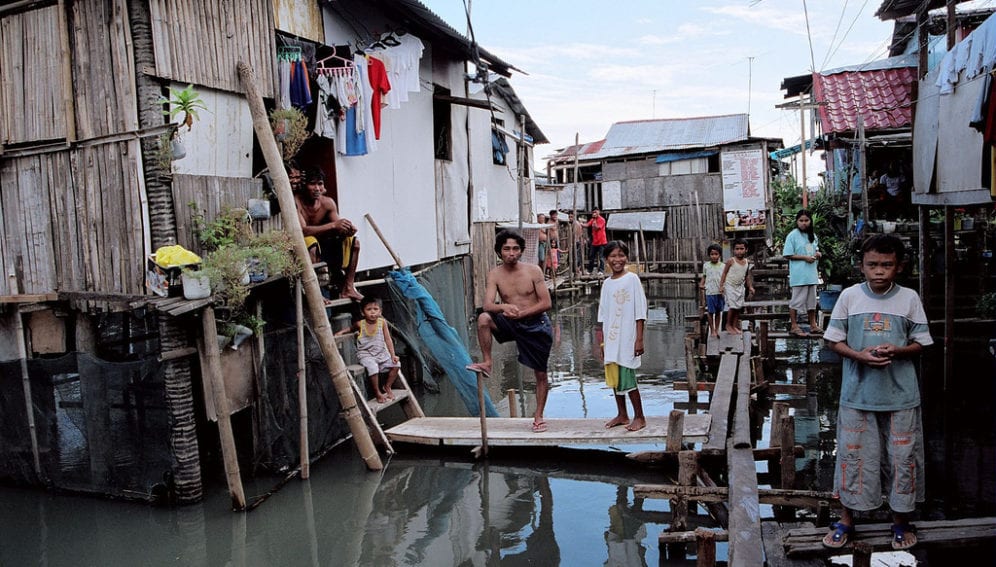By: Roger Williamson
Send to a friend
The details you provide on this page will not be used to send unsolicited email, and will not be sold to a 3rd party. See privacy policy.
I remember a dry comment nearly 40 years ago by a young woman on hearing that storms on the east coast of the United States had resulted in hugely costly damage: "Yeah, well, that'll be about four houses then".
It came to mind when I read a SciDev.Net story on a study that said flood damage to coastal cities around the world could run to US$1 trillion a year. The numbers in the report are massive, but, for me, the report's most telling phrase was: "However, the paper does not assess the potential damage affecting those who live in slums and informal settlements, because their livelihoods cannot be economically quantified".
It confirms what the young woman in the US knew four decades ago: those with assets count — and are counted. New York City gets flooded: worldwide media attention. A slum in Mumbai goes under: we probably don't hear about it or know how many people die.
Fortunately, some people and organisations do put a value on the lives of the poor, as participatory development specialist Robert Chambers said in his book Whose Reality Counts?: Putting the Last First. Of those organisations, perhaps the most inspiring I have encountered is Shack/Slum Dwellers International (SDI).
With a total of US$30 million in external funding, SDI has supported the growth and consolidation of federations of slum- and shack-dwellers and homeless people in 30 countries. It has helped create 16,000 savings groups and secured tenure for more than 200,000 households. Where possible, it works with local governments.
Earlier this year, the International Institute for Environment and Development held a meeting on Financing Urban Adaptation to Climate Change in which organisations representing the world's billion slum-dwellers participated. In his commentary on the event, the institute's David Satterthwaite proposes splitting one per cent of the global funds currently devoted to aid between SDI and the Asian Coalition for Community Action. [1]
This would mean each network getting US$600 million. It's a lot, and care would be needed to ensure that the organisations did not collapse under the weight of the new funds.
The funds would support vital work. They have a long history of working from the community level up using participatory methods, they are accountable to their communities and have outstanding leaders — like Jockin Arputham and Sheela Patel from India and Somsook Boonyabancha from Thailand.
That's where the smart money should go. These organisations have a track record of spending money well, so why not scale them up? [2]
Roger Williamson is an independent consultant and visiting fellow at the Institute of Development Studies at the University of Sussex, United Kingdom. Previous positions include organising nearly 80 international policy conferences for the UK Foreign Office and being head of policy and campaigns at Christian Aid.
References
[1] David Satterthwaite, D. 8 points on financing climate change adaptation in urban areas (IIED, 20 June 2013)
[2] TEDx How to Ensure that Aid Empowers Urban Poor Groups: David Satterthwaite at TEDxHamburg City 2.0 (TED, Video accessed 13 September 2013)














